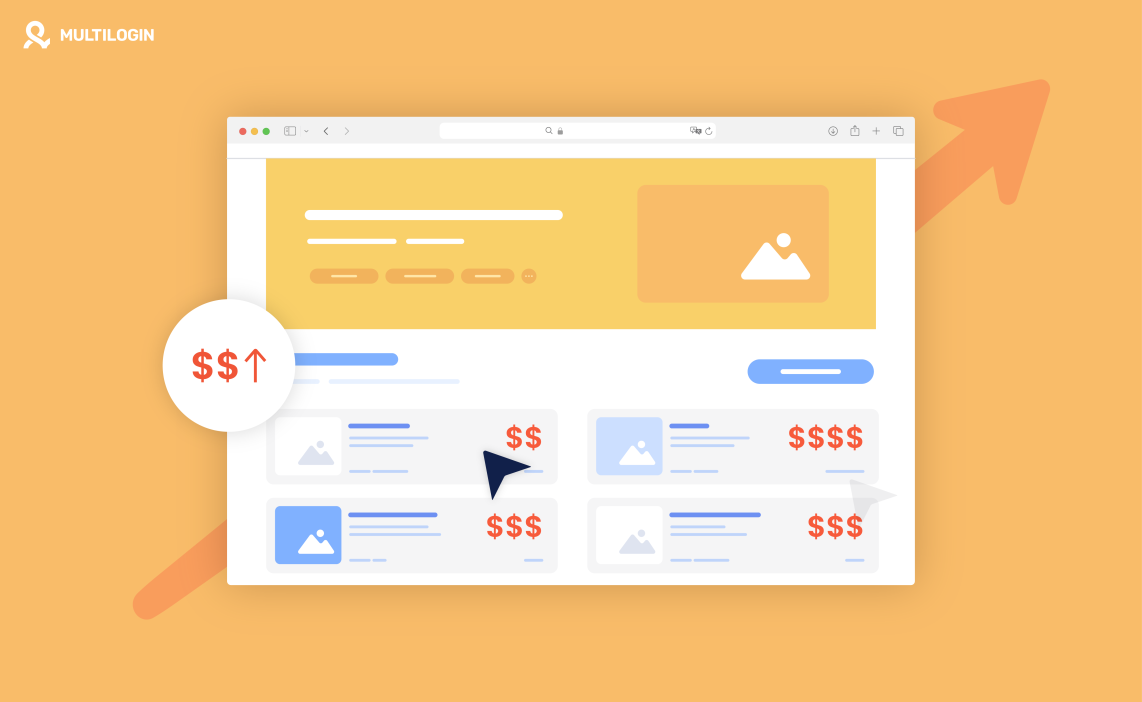Scalping tickets, or reselling tickets for profit, has been a longstanding practice in event ticket sales. Although controversial, many people engage in ticket scalping for popular events like concerts, sports games, or festivals.
With the rise of online platforms and marketplaces, scalping has evolved from physical exchanges outside venues to sophisticated online transactions. However, the question remains: how does ticket scalping work, and what is the best way to scalp tickets online?
In this guide, we will explore the process of ticket scalping, how to scalp tickets online, the best strategies, and the associated risks.
What is Ticket Scalping?
Ticket scalping involves buying event tickets at face value and reselling them at a higher price to make a profit. This practice often occurs for high-demand events where tickets are likely to sell out quickly.
Scalpers take advantage of this demand by reselling the tickets to fans who are willing to pay more than the original price.
Although ticket scalping has a long history, it is subject to legal and ethical scrutiny, with different countries and regions imposing various regulations. In some places, scalping is outright illegal, while in others, it is allowed with limitations.
How Does Ticket Scalping Work?
At its core, ticket scalping works by acquiring tickets before they sell out and reselling them at a higher price on secondary markets.
Here’s how it typically happens:
- Buying Tickets Early: Scalpers use methods to purchase tickets as soon as they go on sale. This often involves using automated bots or multiple accounts to buy tickets quickly before they sell out.
- Using Multiple Accounts or Bots: Many scalpers create multiple online accounts or use bots to purchase several tickets in bulk. Platforms like Multilogin can help bypass detection systems by creating unique browser profiles for each account, ensuring anonymity.
- Selling on Secondary Markets: After securing the tickets, scalpers list them for resale on online platforms like eBay, StubHub, or other marketplaces. They set a higher price based on demand for the event, often making significant profits.
- Transaction: Buyers purchase tickets from the scalpers, and in most cases, transactions are completed through secure payment methods.
While this process seems straightforward, it comes with several risks, both for the scalpers and the buyers.
Is Scalping Tickets Legal?
The legality of ticket scalping varies depending on your location and the event. In many places, there are laws regulating or prohibiting scalping.
For instance, using automated bots to purchase large quantities of tickets is illegal in the United States under the Better Online Ticket Sales (BOTS) Act. Similarly, countries like Canada and Australia have specific regulations on how much a ticket can be resold for.
If you’re considering scalping tickets, it’s crucial to understand the laws in your region to avoid fines, penalties, or legal issues.
How to Scalp Tickets Online
If you’re looking to scalp tickets online, there are a few strategies to follow:
1. Target High-Demand Events
The first step is to identify events that are likely to sell out quickly. Popular artists, major sporting events, and exclusive festivals are prime candidates for scalping. The more demand for the tickets, the higher the potential profit.
Use platforms like Twitter to monitor trending events and gauge their popularity.
2. Use Bots and Automation
Successful scalpers often rely on bots to automate ticket purchasing. These bots can purchase tickets faster than any human, allowing scalpers to secure multiple tickets within seconds of them going on sale.
However, ticket platforms are increasingly sophisticated in detecting bots, so it’s important to stay cautious. Using tools like Multilogin to mask browser fingerprints and create multiple accounts can help avoid detection.
3. Leverage Multiple Accounts
Using multiple accounts increases your chances of purchasing tickets before they sell out. This strategy is particularly effective when combined with automation tools. Creating several accounts on different ticketing platforms lets you buy in bulk without getting flagged for suspicious activity.
4. List Tickets on Reputable Platforms
Once you’ve secured your tickets, the next step is to list them for resale. Trusted platforms like StubHub, SeatGeek, and eBay allow you to resell tickets legally and securely. Be mindful of each platform’s rules and fees, which could impact your profits.
5. Stay Anonymous
To avoid getting banned or detected by ticketing platforms, it’s essential to maintain anonymity. Using an antidetect browser like Multilogin allows you to switch between multiple accounts without leaving traces that could link them together. This makes it harder for platforms to detect your scalping activities.
6. Monitor Price Trends
The ticket market is highly volatile. Prices fluctuate based on demand, so it’s essential to monitor trends and adjust your listing prices accordingly. Some events may have higher resale values closer to the event date, while others may see a dip. Use data analytics tools to help predict trends and maximize your profits.
Risks of Ticket Scalping
While scalping can be lucrative, it’s not without risks:
- Legal Issues: If scalping is illegal in your area, you could face fines, penalties, or even criminal charges.
- Account Bans: Ticketing platforms have robust detection systems designed to prevent scalping. If you’re caught using bots or multiple accounts, your accounts could be banned, and you could lose access to future sales.
- Scams and Fraud: The secondary market is full of fraudulent sellers and buyers. Always use trusted platforms and payment methods to avoid scams.
- Financial Loss: If you overestimate demand for an event, you could be left with unsold tickets, resulting in financial losses.
Best Way to Scalp Tickets
While there’s no foolproof method, the best way to scalp tickets involves a combination of preparation, automation, and discretion. Here’s a quick breakdown of the optimal approach:
- Preparation: Research the most in-demand events and focus on those that are likely to sell out quickly.
- Automation: Use bots and automation tools to secure tickets faster than manual buyers.
- Discretion: Use antidetect tools like Multilogin to maintain anonymity and avoid getting banned on ticketing platforms.
- Platform Selection: Resell tickets on trusted platforms with a good reputation to minimize fraud and ensure smooth transactions.
Frequently Asked Questions About How to Scalp Tickets
Is Ticket Scalping Profitable?
Yes, ticket scalping can be profitable if done correctly, especially for high-demand events. However, it’s important to factor in the risks and the possibility of legal issues.
How Does Ticket Scalping Work?
Scalpers buy tickets at face value when they first go on sale, often using bots or multiple accounts. They then resell those tickets at a higher price on secondary markets like eBay or StubHub.
Is Ticket Scalping Legal?
The legality of ticket scalping varies by location. In some areas, it’s allowed with limitations, while in others, it’s outright illegal. Always check local laws before engaging in scalping.
How does Multilogin help in scalping tickets?
Multilogin helps by allowing you to manage multiple accounts across different platforms, reducing the risk of detection and maximizing your purchasing power.
Can You Get Banned for Scalping Tickets?
Yes, many ticketing platforms have measures in place to detect and ban users engaged in scalping activities, especially if they use bots or multiple accounts.
Final Words
Ticket scalping can be a profitable venture, but it’s essential to navigate the process carefully to avoid legal pitfalls and account bans.
With the right tools, strategies, and precautions, you can scalp tickets effectively and safely. Always keep in mind the legal restrictions and ethical considerations to ensure that your ticket-selling endeavors remain above board.


